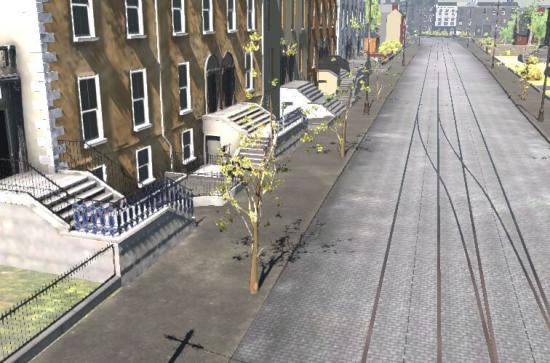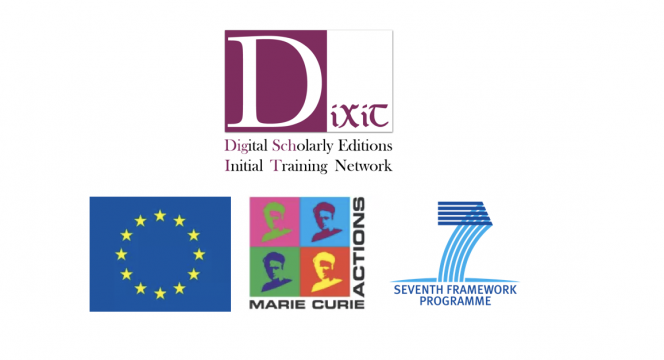
The aim of this two-day Masterclass, funded by the DiXIT Scholarly Editions Inital Training Network, is to bring together experts from the fields of Heritage 3D Visualisation and Digital Scholarly Editing to create a common vocabulary between the two disciplines. This Masterclass will explore and problematise the affordances of Virtual Worlds within the theories and methodologies of digital scholarly editing, including the constructing, annotating, reviewing, and evaluating VWs as texts.
In the last three decades, computer-based 3D modelling and visualisation in cultural heritage has enabled the (re)construction of artefacts, buildings, and landscapes as a process of producing and sharing knowledge about the past. However, critics have emphasised their ambiguous nature and their high visual stimulus that deceive users into thinking that these are precise accounts of past reality based on material evidence, historical sources, and scientific methods. Over the years, there have been several attempts to illustrate ambiguity and make the process of production more transparent; non-photorealistic rendering, digital annotations, parameterisation, alternative reconstructions, colour coding, different levels of transparency, quantification of uncertainty, and even a series of theoretical principles, such as the London and Seville Charters, have been suggested and/or employed to overcome the problematic nature of 3D modelling in heritage visualisation.
Over the past twenty five years there has been an evolving body of scholarship exploring the standards, theories, and methodologies of digital scholarly editing producing an ever-growing body of research exploring what this new medium could bring to the study of the transmission of texts, and thus editorial practice normative to this environment. While much of the emphasis of digital editions has been on texts that can be expressed in machine readable text (either originally in print or manuscript), and their transmission history, the theories and methods informing textual scholarship can be extended to all forms of texts, verbal, visual, or oral.
By bringing together scholars from the two fields we will explore a series of theoretical and practical issues pertaining to the creation, annotation, and publication of virtual worlds with the ultimate aim to marry the practices of both communities in the creation of new three-dimensional editions that will address the following:
- How do we consider virtual worlds as texts?
- What is the textuality of the virtual world?
- How do we retain the immersion of virtual worlds while providing comprehensive in-world documentation?
- How do we document ambiguity?
- How do we make the process of production transparent?
- What does an apparatus look like in a virtual world?
- If virtual worlds are the new editions, how are they going to be reviewed and evaluated?
Participation
This MasterClass is aimed at people with experience in the fields of Heritage 3D Modelling and Visualisation and Digital Scholarly Editing. Submissions are especially encouraged from early career researchers with past and current projects that would benefit from knowledge and skills on the creation of virtual worlds as digital scholarly editions. Participants should bring a laptop and should ensure that their projects will be accessible to other participants - either online or by bringing 3D files to the masterclass.
The MasterClass will be limited to 12 participants. Preference will be given to applicants whose area of expertise falls under one or more of the topics covered during the Masterclass and those who work or have worked in the past on Digital Scholarly Editions or 3D visualisation projects. The event is open to Irish, European, and international applicants. Accommodation and transportation will be covered for all selected participants up to a maximum of €250 for participants based in the Republic of Ireland and up to €500 for participants outside Ireland. Meals for all days of the event will also be covered.
Application Process
Please send by the 30 April using the Google Form
- CV clearly highlighting the projects related to the theme of the Masterclass
- Personal statement outlining the ways that this Masterclass could benefit your current work and research interests
All applicants will be notified by the 5 May.
The Masterclass is funded by
Digital Scholarly Editions Initial Training Network

